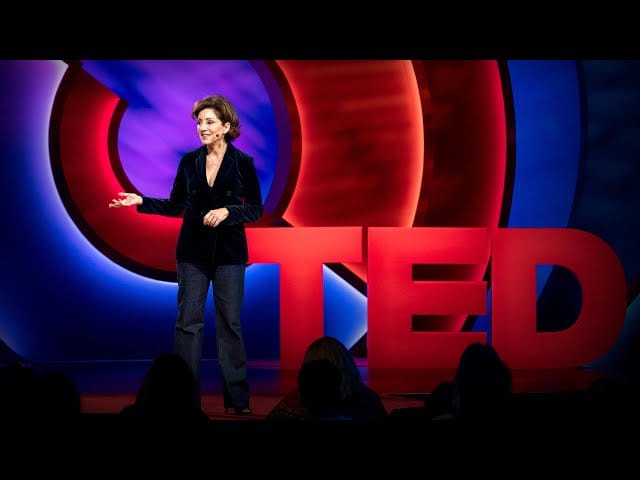“Why Winning Doesn't Always Equal Success” by Valorie Kondos
• public
Table of contents
Valorie Kondos has a refreshing approach to success, reminding us that it's not all about winning. She believes that personal growth, character development, and learning from failures are just as important. Her inspiring talk encourages us all to reconsider what success truly means and to focus on the qualities that lead to genuine long-term happiness and fulfillment.
For Key Ideas, Questions and Quotes from this talk, you can scroll below.
Valorie Kondos gave this speech at the TED Conference. All rights to the speech and the video above belong to TED.
About Valorie Kondos
Valorie Kondos Field, often referred to as Miss Val, is a retired American gymnastics coach. She was the head coach of the UCLA Bruins gymnastics team of the University of California, Los Angeles from 1991 to 2019, leading the Bruins to seven national championship titles. (Source: Wikipedia)
Key Ideas From Talk
We live in a society that is obsessed with winning. This idea is imposed on us from birth until death, in school, at work, and in social life. Even as we grow older and withdraw from life a bit, we still feel constant pressure to win. As a result, we make decisions and live our lives under this pressure.
But is winning really that important? What is winning, and what is success? Is winning everything when it comes to success? It is crucial that we put these concepts in the right place in our minds and understand and deepen them, as we think with these concepts.
Valorie's speech provides insight into the concepts of winning and success. It is a remarkable speech. The following are the key ideas that impressed me:
- Redefining success: Kondos encourages us to redefine success beyond winning and embrace personal growth, resilience, and character development as crucial elements of true success.
- Embracing failure: She emphasizes the importance of embracing failure as an opportunity for learning, growth, and building resilience. Failure does not define us but rather shapes us into stronger individuals.
- Values over accolades: Kondos highlights the significance of prioritizing values such as integrity, kindness, and empathy over external accolades. True success lies in the impact we make on others and the values we uphold.
- Joy and fulfillment: She encourages finding joy and fulfillment in the journey itself rather than solely focusing on the end result. The process of striving, learning, and improving can bring immense satisfaction and a sense of purpose.
- Personal growth and self-discovery: Kondos emphasizes that success is deeply personal and unique to each individual. It involves self-discovery, self-reflection, and continuously challenging oneself to grow and evolve.
Questions to Ask Ourselves
- How do I define success in my own life? Is it solely based on winning, or does it encompass personal growth, resilience, and character development?
- How do I handle failure? Do I see it as an opportunity for learning and growth, or do I let it discourage me?
- What are the values that matter most to me? Am I prioritizing and living by those values in my pursuit of success?
- Am I finding joy and fulfillment in the journey towards my goals, or am I solely focused on the end result?
- How can I embrace personal growth and self-discovery in my life? What steps can I take to continuously challenge myself and evolve?
- Do I celebrate my progress and the progress of others, even if it doesn't always lead to immediate "wins"?
- Am I focused on making a positive impact on others and upholding integrity, kindness, and empathy in my actions?
- What steps can I take to foster a mindset that values personal growth, joy, and fulfillment over external validation?
Quotes From Talk
Related List and Guide
This talk is a part of following list: "Talks That Changed My Perspective".
